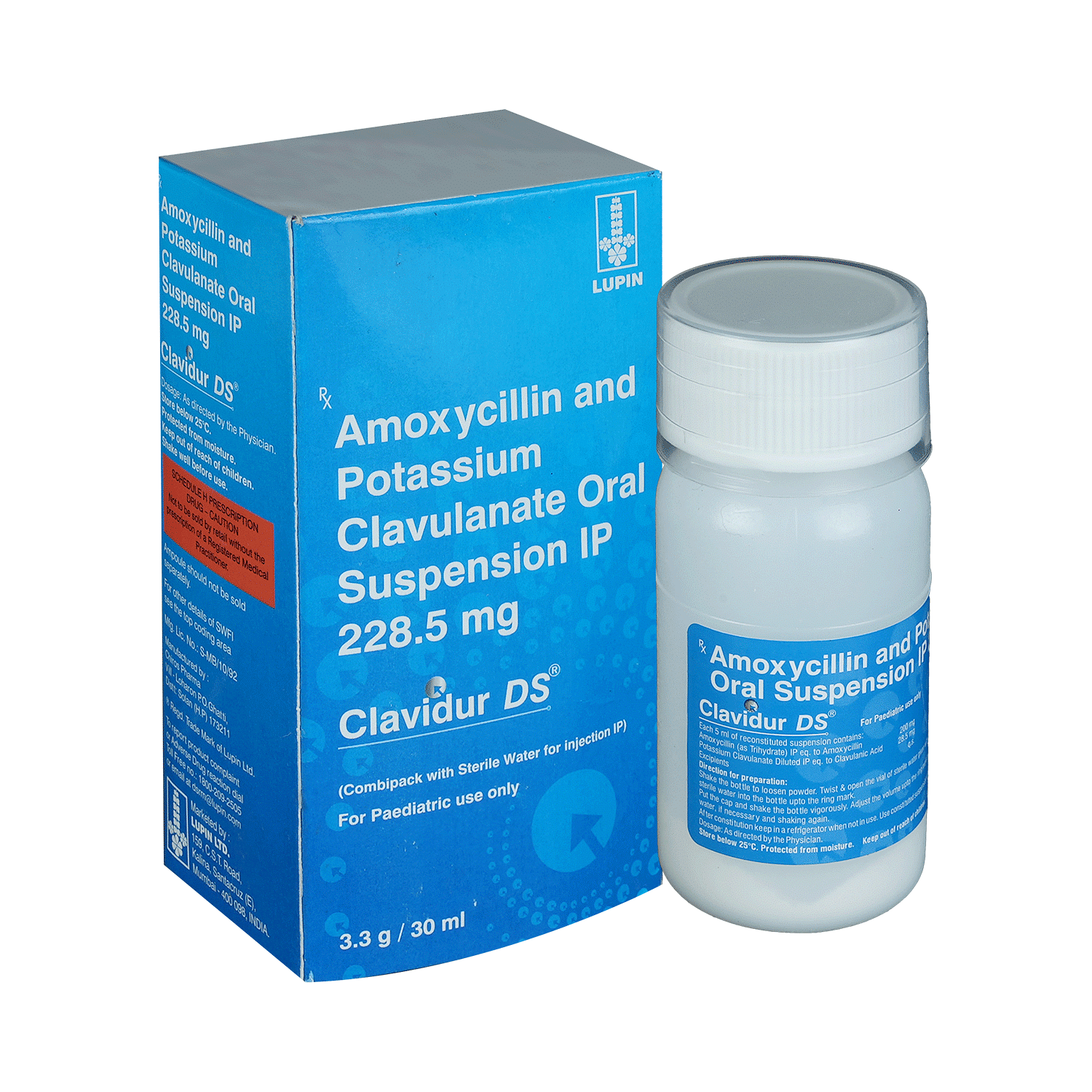
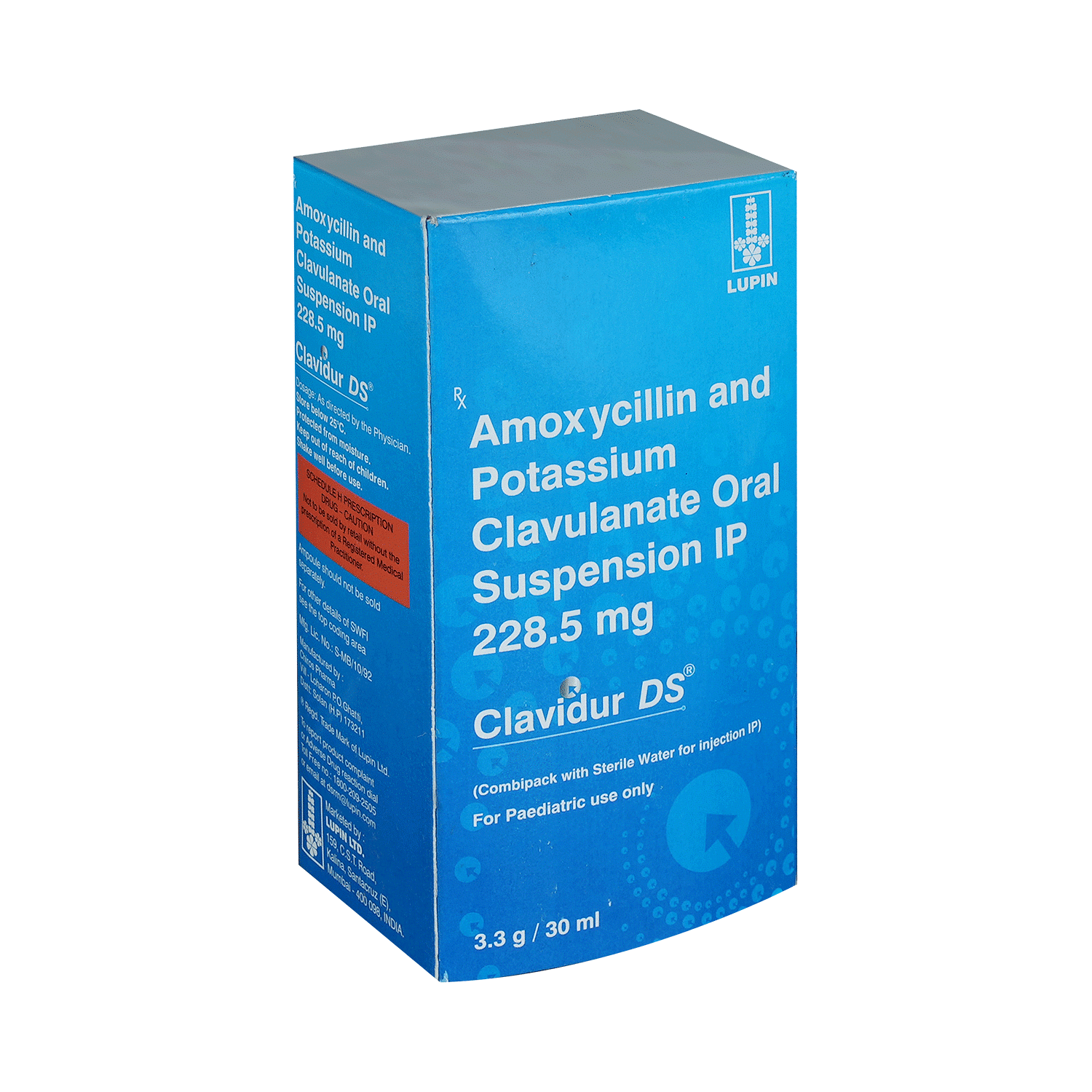

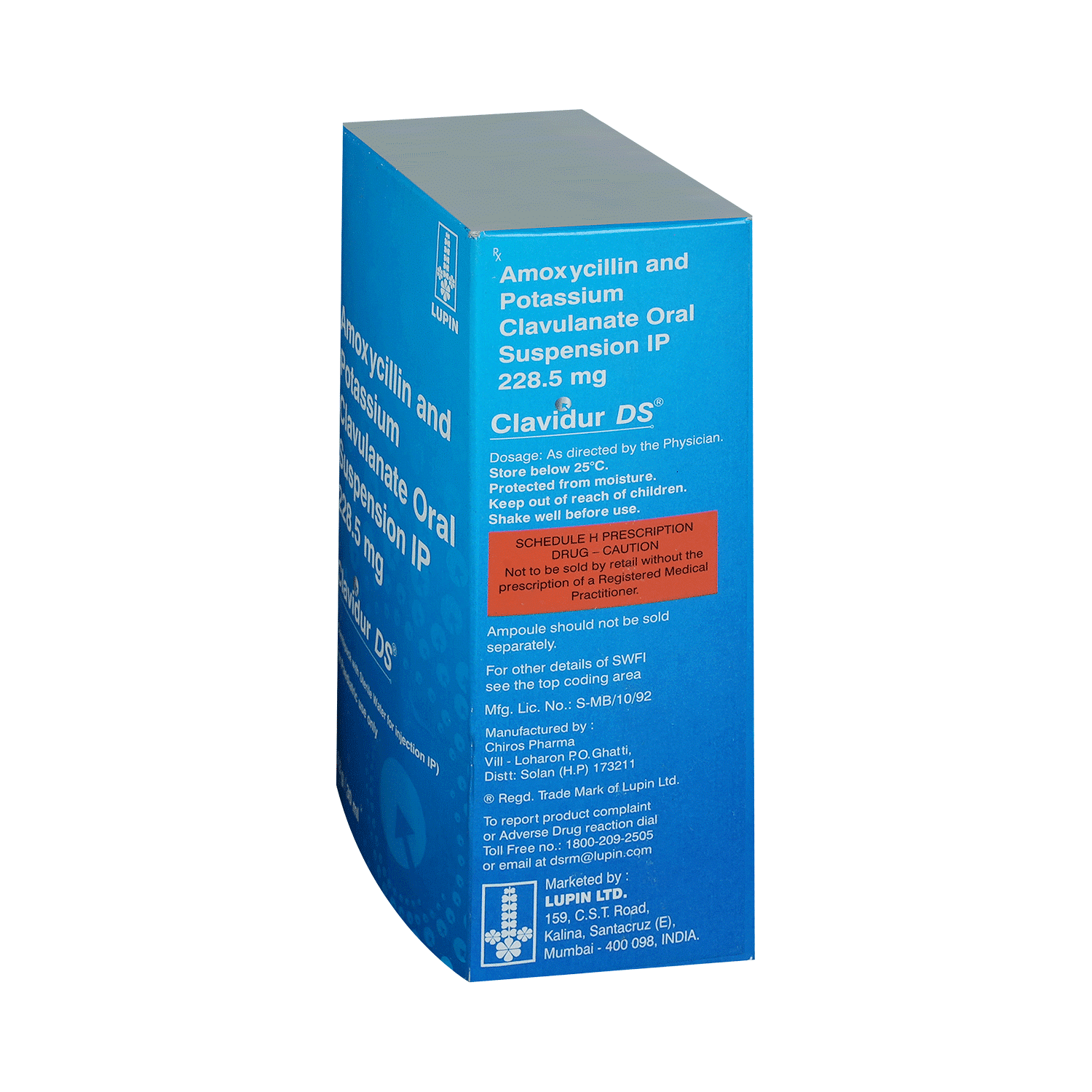


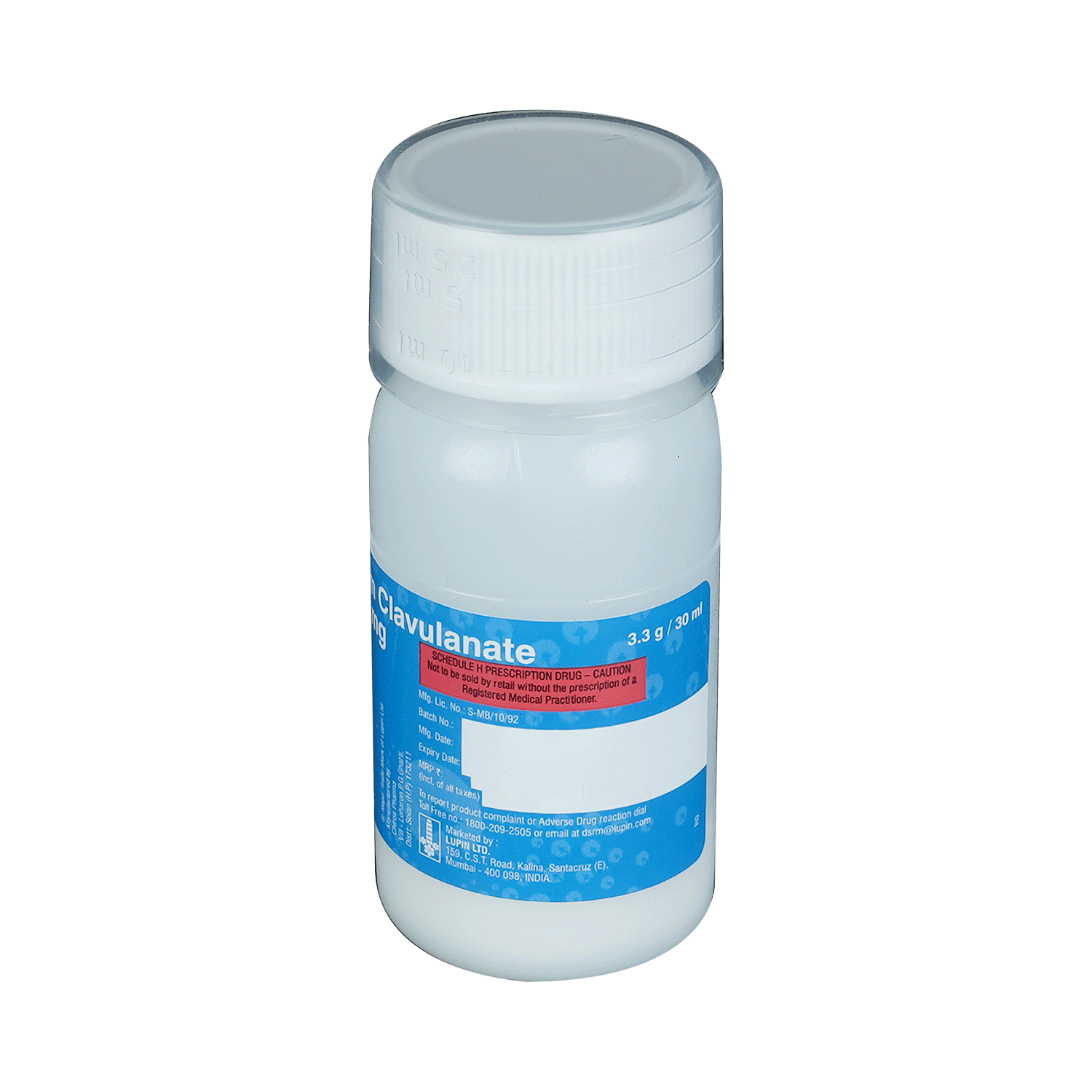
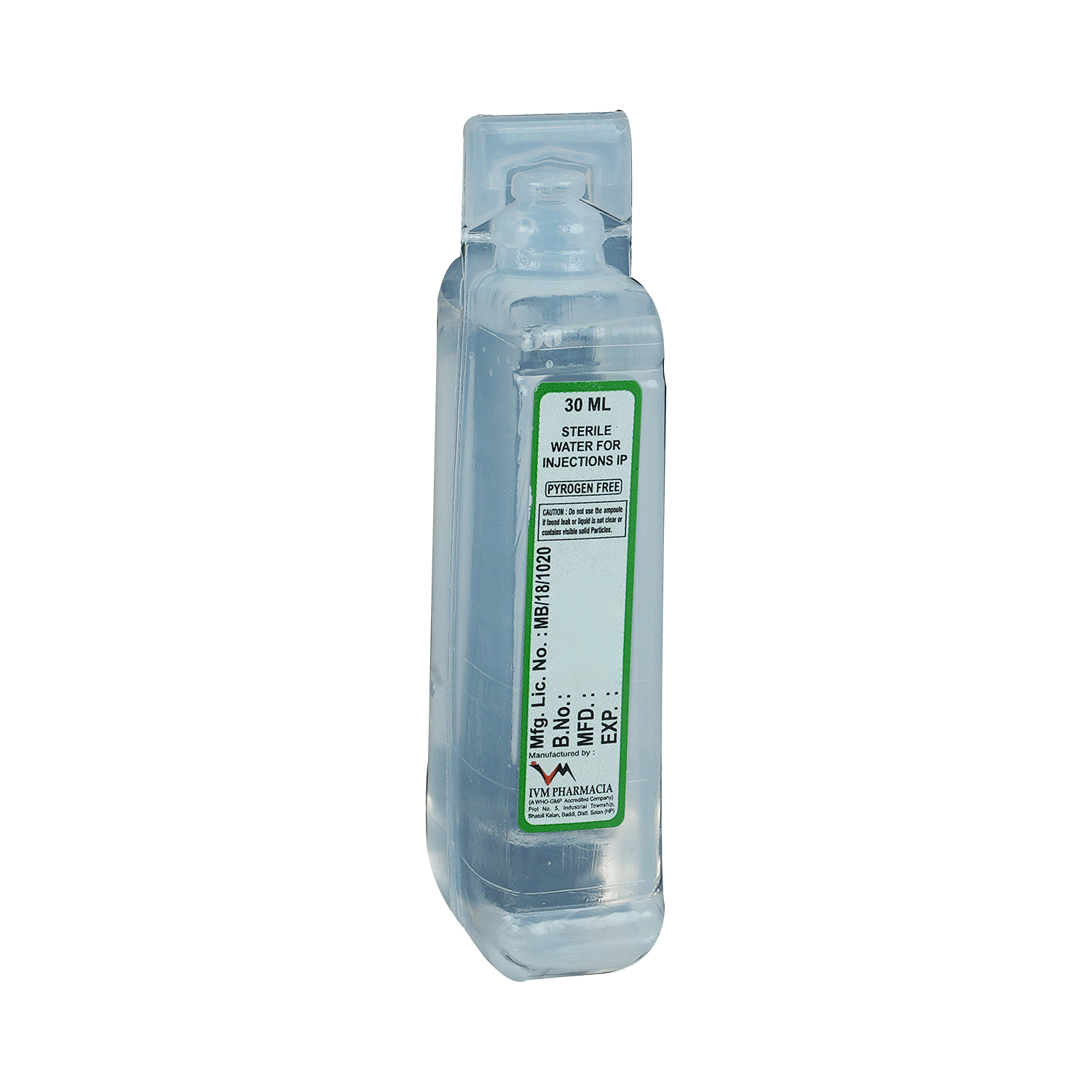
Clavidur DS Syrup
Manufacturer
Lupin Ltd
Salt Composition
Amoxycillin (200mg) + Clavulanic Acid (28.5mg)
Key Information
Short Description
Clavidur DS Syrup is an antibiotic medicine that helps treat bacterial infections of the ear, nose, throat, chest, lungs, teeth, skin, and urinary tract.
Dosage Form
Syrup
Introduction
Clavidur DS Syrup is an antibiotic medicine that helps treat bacterial infections of the ear, nose, throat, chest, lungs, teeth, skin, and urinary tract. It is capable of killing bacteria that have become resistant to other therapies and thus also helps treat tuberculosis that is resistant to other treatments.
Directions for Use
Never give Clavidur DS Syrup to your child until and unless prescribed by the doctor. You must also never share your child’s medicine with anyone else even if they show similar symptoms.
Safety Information
Side Effects
No common side effects listed.
How it works
Clavidur DS Syrup is an antibiotic. It has two active agents amoxycillin and clavulanic acid. Amoxycillin works by preventing the formation of the bacterial protective covering (cell wall) essential for the survival of the bacteria. Whereas clavulanic acid serves a special purpose of inhibiting an enzyme (beta-lactamase) that is produced by resistant bacteria. This makes the combination of amoxycillin and clavulanic acid an effective line of treatment for many types of infections.
Quick Tips
Your child may have a bitter taste in the mouth after the intake of Clavidur DS Syrup. Eating citrus fruit or sipping plenty of water or fruit juice may help. Stop Clavidur DS Syrup immediately if your child develops an itchy rash facial swelling or breathing difficulty. Report to the doctor without any delay.
Related Medicines

Fitclav Syrup

Moxidian CV Syrup

Rosclav Syrup

CV M Syrup

Nvmox Syrup

Byclav CV Syrup

Amoxirut CV Syrup

Clavilect A Syrup

Sigmox CV Syrup

Clavflow Syrup
Frequently asked questions
Can other medicines be given at the same time as Clavidur DS Syrup?
Clavidur DS Syrup may interact with other medications or substances. It is crucial to inform your child's doctor about all medications they are currently taking before starting this treatment. Additionally, consult your doctor before administering any medication to your child.
Can I get my child vaccinated while on treatment with Clavidur DS Syrup?
Antibiotics typically do not interfere with the ingredients in vaccines or cause adverse reactions. However, it is important for children undergoing antibiotic treatment to avoid vaccination until they fully recover from their illness. Once your child feels better, the vaccine can be administered.
Which lab tests may my child undergo while taking Clavidur DS Syrup on a long-term basis?
During prolonged therapy, your child's doctor may monitor kidney and liver function tests periodically to track their condition.
Can I give a higher than the recommended dose of Clavidur DS Syrup to my child?
No, exceeding the prescribed dosage of this medication can increase the risk of side effects. If your child experiences heightened symptoms, contact your doctor for re-evaluation.
Can I stop giving Clavidur DS Syrup to my child when the symptoms are relieved?
No, do not abruptly discontinue this medication unless you have completed the full course of treatment. Symptoms may improve before the infection is completely cleared. Therefore, continue taking the medicine as prescribed.
Can the use of Clavidur DS Syrup cause diarrhea?
Yes, Clavidur DS Syrup can cause diarrhea. This antibiotic targets harmful bacteria. Additionally, it may disrupt the balance of helpful bacteria in your child's stomach, leading to diarrhea. Encourage your child to drink fluids to mitigate this side effect. If diarrhea persists or you observe signs of dehydration such as reduced urination with dark-colored and strong-smelling urine, consult your doctor before administering any other medication.
Do all viral common colds result in secondary bacterial infection?
While most cases of viral common colds do not immediately lead to bacterial infections, antibiotics should only be administered after consultation with your child's doctor. Giving antibiotics during a viral infection can increase the risk of side effects.
The mucus coming out of my child’s nose is yellow-green. Is it a sign of a bacterial infection?
Yellow or green mucus in the nose does not necessarily indicate a bacterial infection. During a common cold, mucus can thicken and change color, transitioning from clear to yellow or green. These symptoms typically resolve within 7-10 days.
Is there any sign which shows that my child needs immediate medical attention?
Seek immediate medical attention for your child if they experience severe allergic reactions (difficulty breathing, skin rash), gastrointestinal infections (diarrhea), or liver damage (weakness, pallor, vomiting). These side effects can be serious and require the attention of a healthcare professional.


